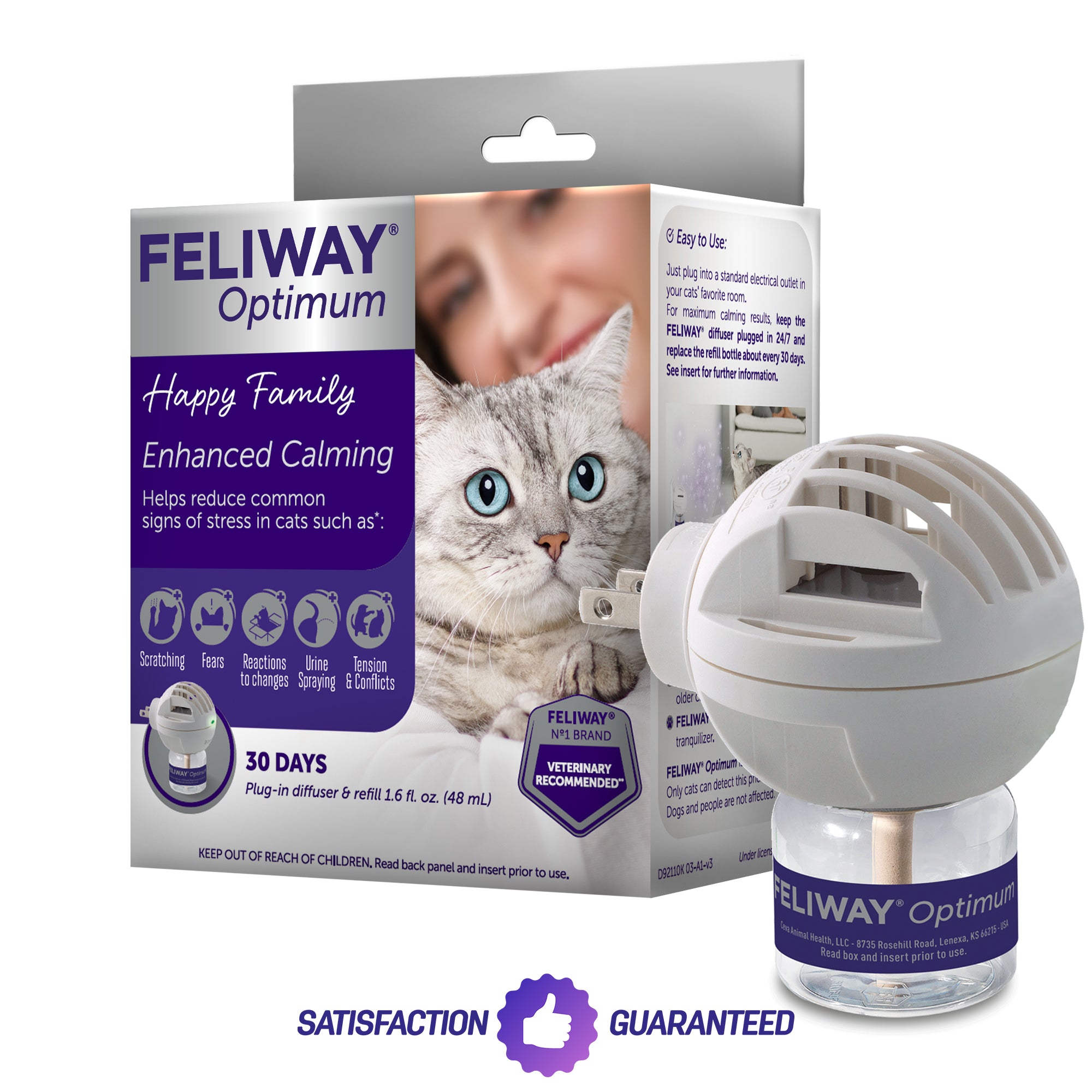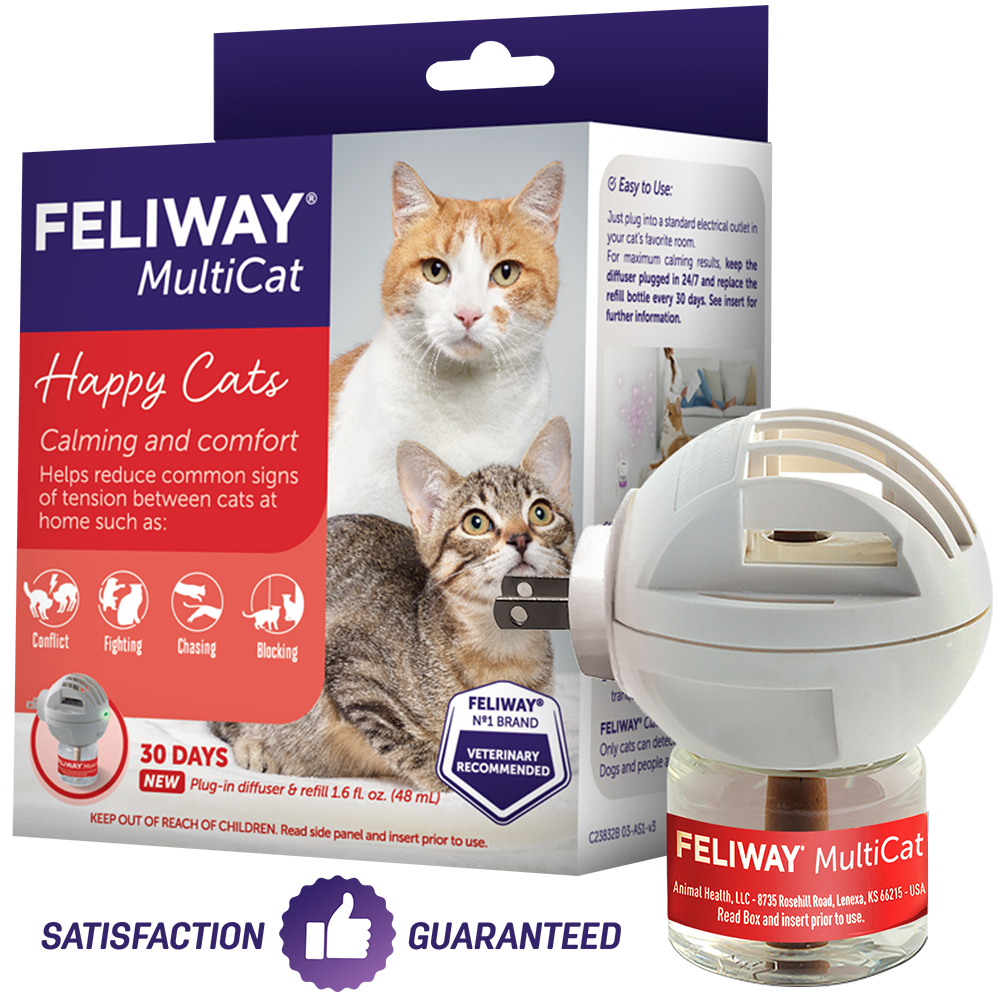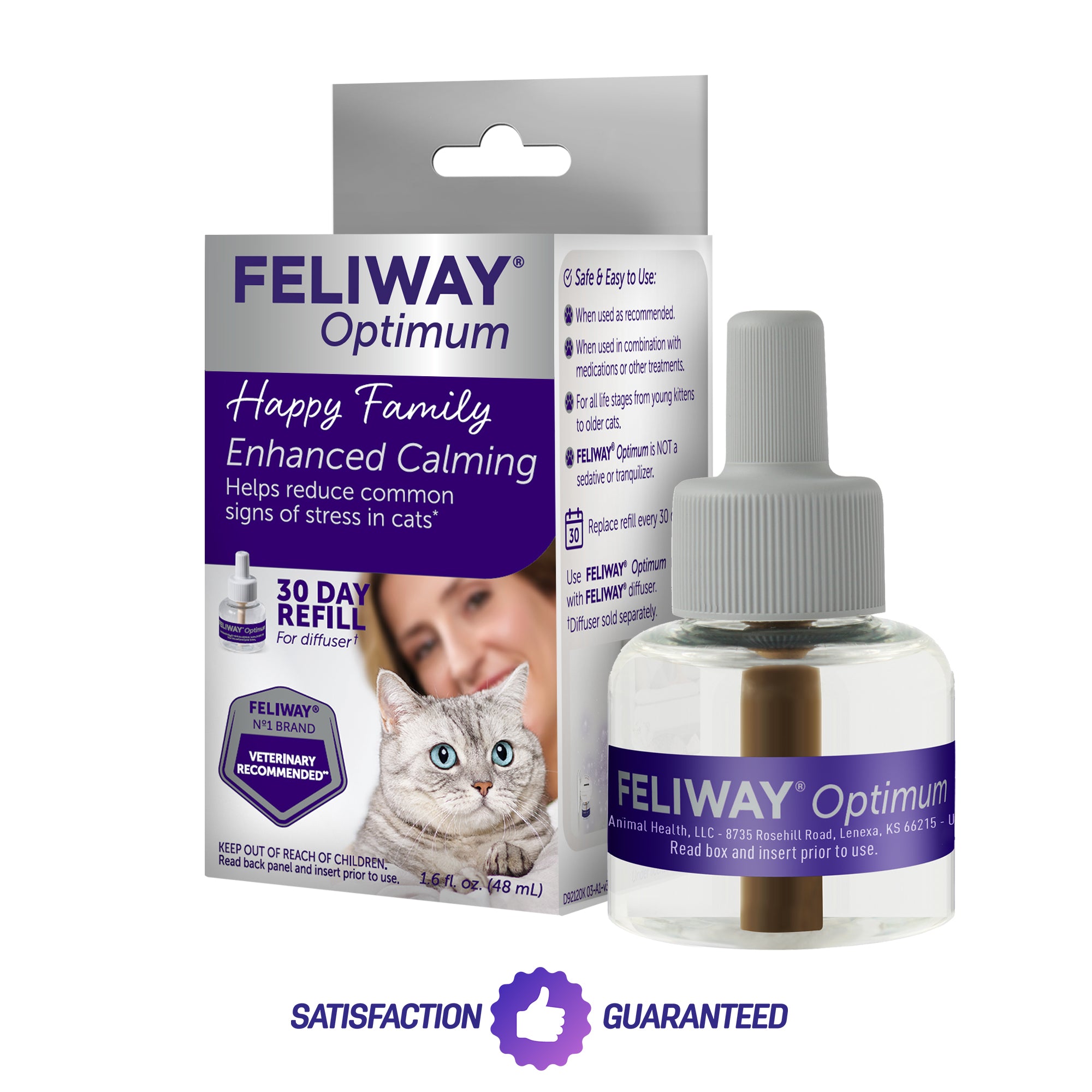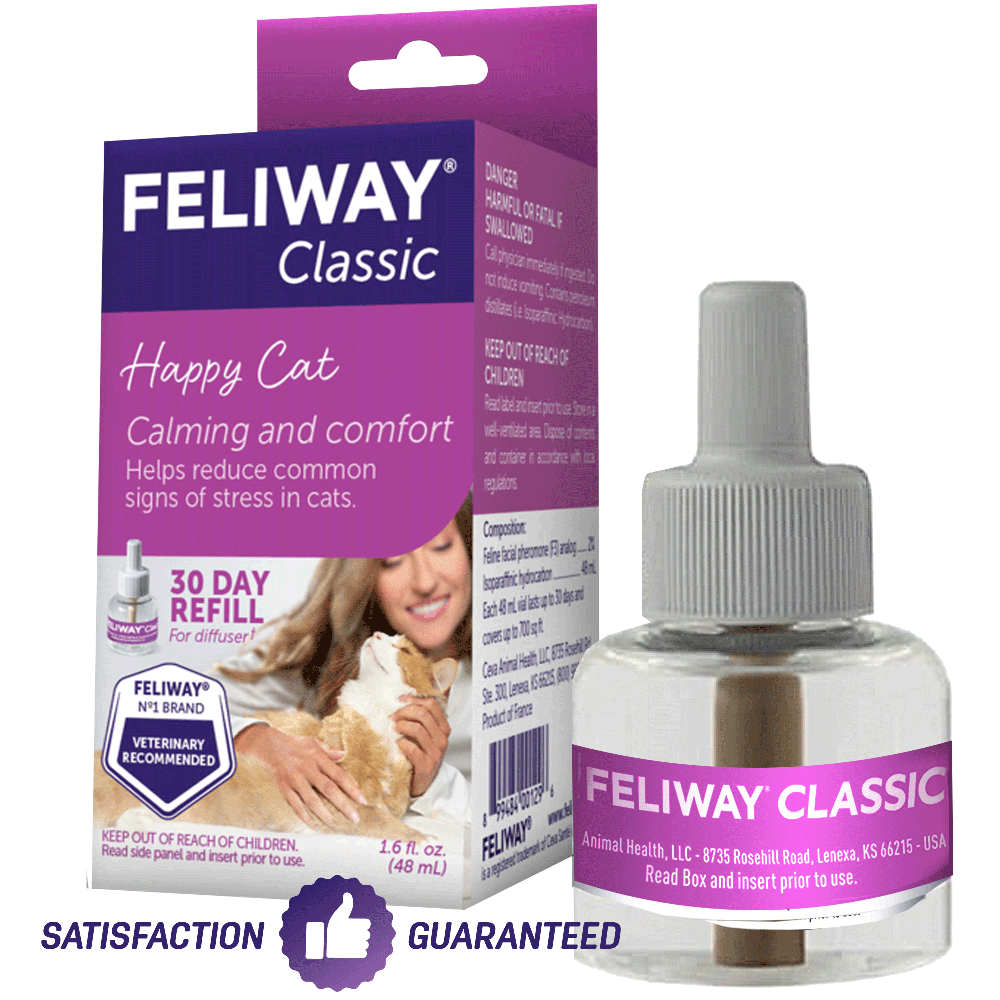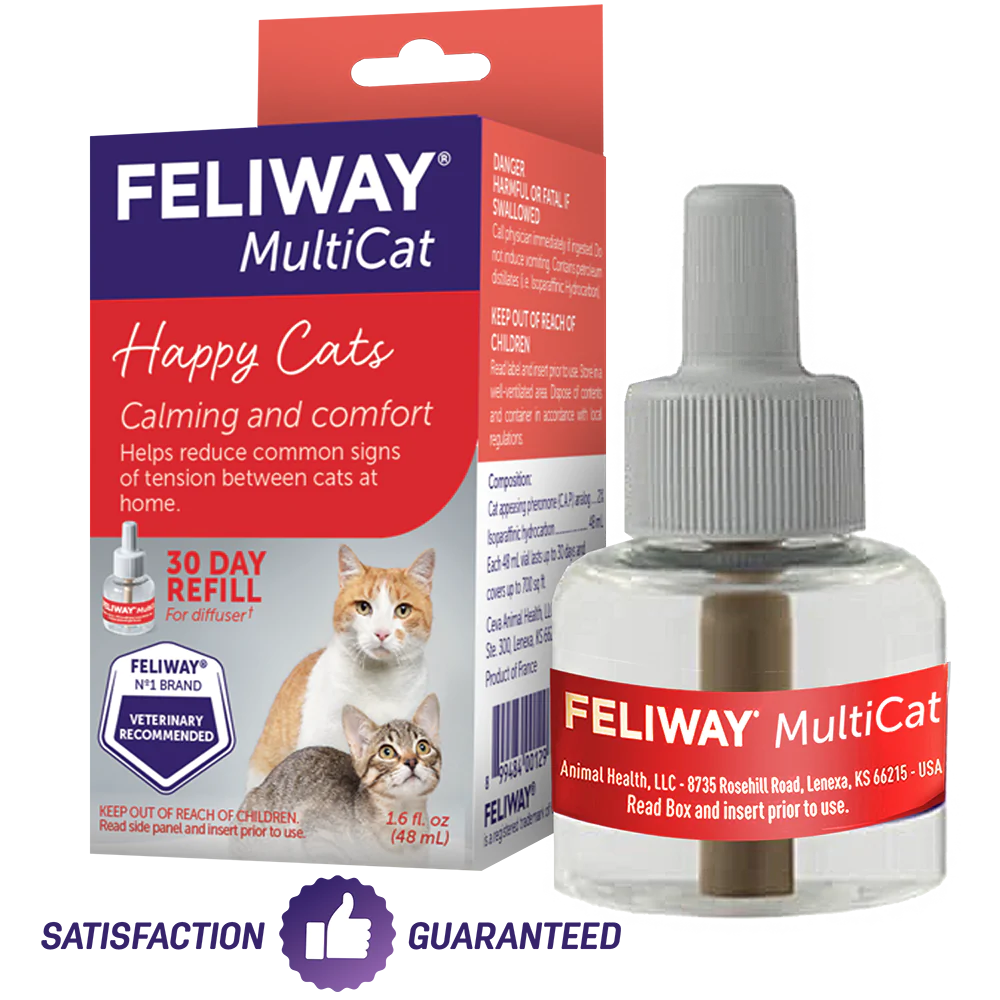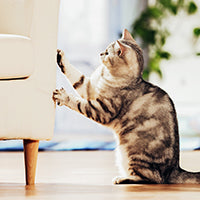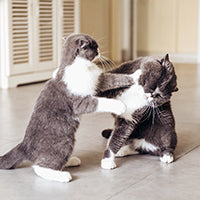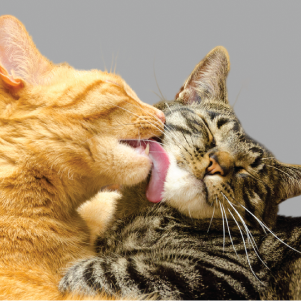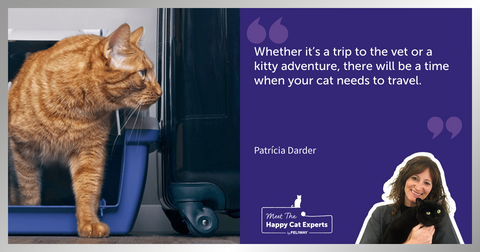
14 Ways to Comfort Your Cat in Stressful Situations
It’s not always easy to know when your cat is feeling stressed or anxious. They are subtle animals and rarely show any obvious signs of emotion.
But cats can get fearful, anxious, and frustrated too. It's important that we understand our cat’s body language and recognize when our cats are in pain or feeling anxious so that we can comfort them in stressful situations.
Signs that your cat may be stressed
Always be on the lookout for any of the following signs:
Is your cat:
- Crouching and looking tense
- Being more vocal than usual
- Hissing or growling
- Becoming more withdrawn
- Hiding more frequently
- Becoming less tolerant of people
- Eating or drinking less than usual
- Overeating
- Swallowing in an exaggerated way
- Licking their nose
- Urinating or defaecating outside the litter tray
Are they:
- Being still when they are normally more energetic
- Shaking
- Holding or swishing their tail close to their body
- Holding their whiskers back with flat ears and dilated eyes
- Hypervigilant
- Spraying urine
- Overgrooming
- Scratching in unusual places

14 Ways to comfort your cat in stressful situations
The sooner you can spot that your cat is not happy, the sooner you can do something about it. Consider the situations that your cat encounters that they may find difficult to cope with. These can include:
- Bringing another cat into the home. This can be stressful, particularly if your cat has had you and the house to themselves for a while. It’s important to make sure that each cat has their own resources, e.g. feeding and drinking stations, beds, hiding places, scratching posts etc.
- Visitors to the home. Cats take a while to get used to new things, so make sure your visitors know how to act around your cat and ask them to let your kitty come to them in their own time.
- A new addition to the family. Babies can turn your world upside down when they first arrive – and it’s no different for your cat! It’s important that you introduce your cat to your new family member gradually, making sure you continue to spend quality time with them after the baby arrives.
- Changes around the home, eg decorating or moving furniture. It’s a known fact that cats like routine and the saying ‘change is as good as a rest’ does not apply to cats! Plan ahead for any upheaval to your cat’s daily routine by making changes gradually, and settling them into a different room with all of their resources so that they can avoid disruption.
- Loud noises, particularly around firework celebrations. Cats have super sensitive hearing so any sudden or loud noises can send their senses into overdrive. When you know firework celebrations are due, take steps to protect your cat by making sure they have access to their favourite safe haven. Try to disguise outside noise by playing music and closing all curtains and doors.
- Travelling in the car to the vet or groomers. Cats like to roam around the house and their own territory, so being enclosed in a car can be stressful for them. Take steps to get them used to their cat carrier, and the car, before you even start to travel. Another useful tip is to use Feliway Classic Spray which is designed to make these trips less stressful.

- Is your favorite feline becoming bored? If you have an indoor cat, it’s important that there is enough around the home, such as hiding places, scratching posts, climbing places, to keep them physically and mentally active.
- Using FELIWAY Optimum will provide enhanced serenity to your cat and help comfort them in stressful situations.
- Make sure your cat can always access their favorite hiding places when they are indoors and that they have escape routes – for example, a high shelf so that they can remove themselves from a stressful situation.
- If they are hiding, do not force them to come out. They will do so on their own terms and when they feel more comfortable.
- Keep them to a routine – this includes feeding times, playtime and bed time.
- Learn how to make sure they get plenty of exercise, including both physical and mental stimulation.
- Keep yourself calm and talk to them in a low, soothing tone.
- Reward them when they are showing signs of relaxing.
If you think your cat is not coping with stressful situations, contact your vet, as there may be an underlying medical problem that is contributing to how your cat is behaving. Your vet can also advise about a qualified behaviorist who can develop a management plan for your cat, depending on the underlying emotions your cat is experiencing.

